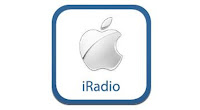But is it possible that what we think of as viral isn't actually viral after all? A number of recent articles and presentations propose that these videos were given a big corporate helping hand first before getting any kind of traction.
Take for instance Psy's "Gangnam Style." In a recent article on Pando, Brandon Mendelson postulates that the video's success is "actually the tail end of months and months of preparation, buying fake views and comments, an extensive PR campaign, and his video fitting a very specific need for the business model that fuels the web: The Page View Based Economy."
He goes on to state that Psy's record company purchased views and comments by using companies like Microworkers and Fiverr to trick the YouTube algorithm into thinking the video was exploding. It actually was, only as a result of gaming the system.
Another article by Keven Ashton on Quartz points out that Baauer's "Harlem Shake" had only a few thousand views as a result of YouTube comic George Miller's video compilation. It was only after Warner Brother's owned Maker Studios made a version of the video to promote the studio itself and promoted it across it's many YouTube channels and Twitter did the video begin to get some traction. Other companies, DJs and bloggers jumped on, mostly to promote themselves, which caused Baauer's record label to take notice and begin its own promotion. Ashton provides a pretty thorough blow by blog of how it all took place, and it a lot less to do with what we think "viral" is rather than self-promotion. Here's the very first version the "Harlem Shake."
The gist of both articles is that what we believe and what's reality are frequently two different things when it comes to social media. It's becoming easier to manipulate many of the metrics that we use to measure success, if you have the money.
----------------------------------
Help support this blog. Any purchases made through our Amazon links help support this website with no cost to you.
Interested in the Music 3.0 archives? Buy The Music 3.0 Guide To Social Media for the best of over 800 posts.
You should follow me on Twitter for daily news and updates on production and the music business.
You should follow me on Twitter for daily news and updates on production and the music business.
Check out my Big Picture blog for discussion on common music, engineering and production tips and tricks.




